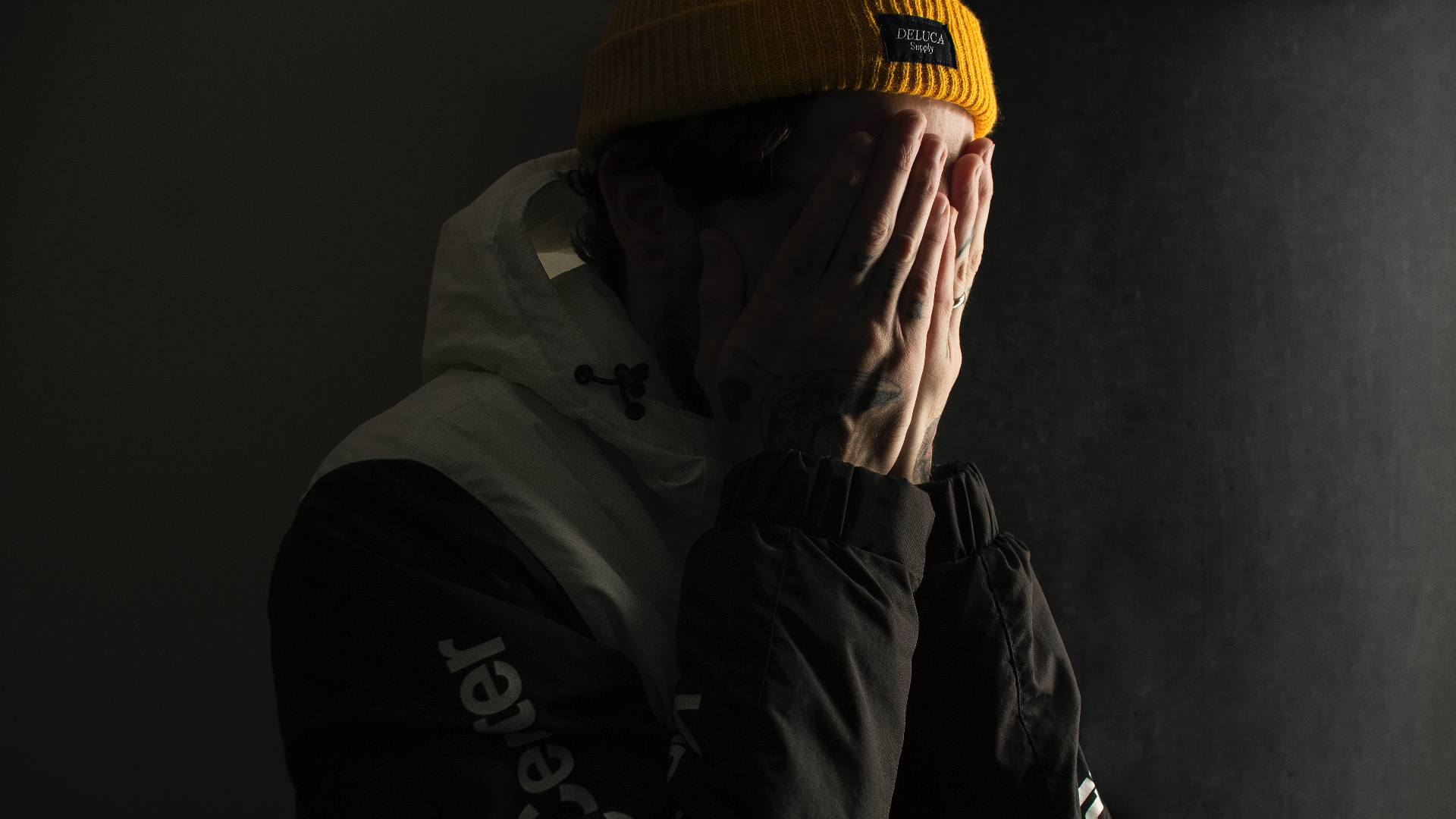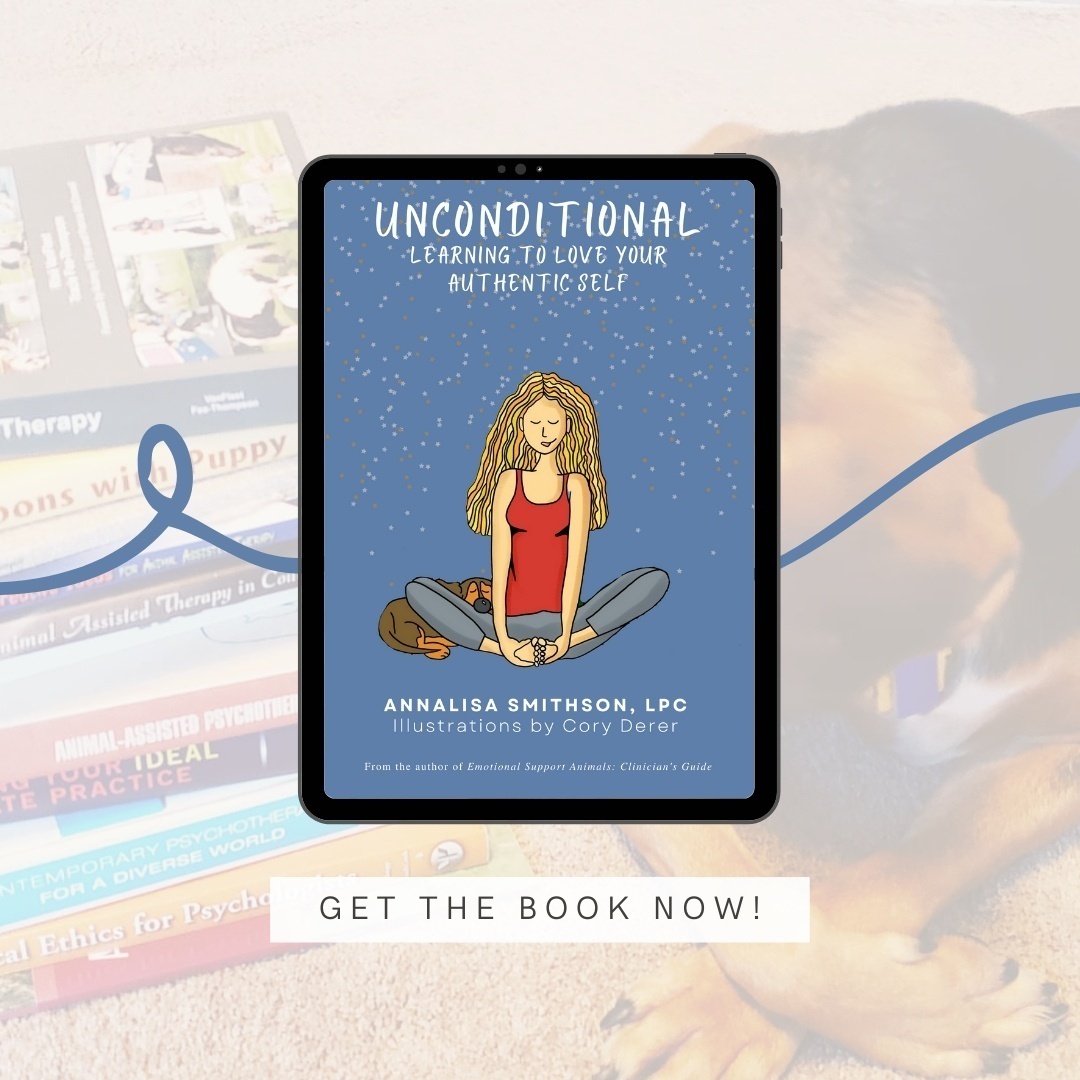Forgiving Yourself

The following is an excerpt from Unconditional: Learning to Love Your Authentic Self by Annalisa Smithson, LPC (available on Amazon now!)
Why should you forgive yourself? Because you deserve forgiveness, of course! As you deepen your practice of self-love, you will learn to believe that wholeheartedly. A simpler question for the moment is, how do we actually go through the process of forgiving ourselves? What steps do we take to forgive ourselves for the thousand tiny cuts we’ve inflicted on others and the handful of major transgressions we might make in our lives?
Hiding from Shame
It doesn’t matter if the mistakes you’re beating yourself up for are large or small. The steps to forgiveness are the same. We take the first step by not hiding from our mistakes. It is imperative to give a voice to that trifecta of painful emotions: guilt, shame, and blame. This is the fundamental step to forgiveness and carves a direct path to self-love. Recently, I had a session with a client that made the decision to take her first stride.
Elliott sat in front of her camera, crying silent tears at the start of our telehealth therapy session. I sat in front of my camera, respectfully averting my eyes to make space for her grief. Nobody likes to be gawped while they’re crying. As seconds stretched into minutes, I pondered the cruelty of misplaced guilt. Guilt, shame, and blame are the prized winnings of our inner critic. They include a series of hurtful, usually illogical, thoughts that our inner critic spouts at us until we either accept these feelings as inevitable or make the choice to pivot. Elliott had just taken the courageous step of sharing the root of her trauma with me. She was ready to pivot.
Several years before, Elliott had lost a loved one to suicide. She had planned to see her best friend the night he took his life, but she never made the call, nor did she send a text. She spent almost 4 years carrying that burden. She blamed herself. She was ashamed of herself. She believed in her heart that she could have saved her friend, and she replayed ‘what-ifs’ on a loop in her mind. As her life moved forward she held herself back from embracing her accomplishments and realizing her joy. Each time she experienced a milestone, she reminded herself that her friend would never have those opportunities.
After a few well-meaning friends unwittingly dismissed her with platitudes like, “It’s not your fault” and “How could you have known?” Elliott stuffed her feelings down. But the guilt, shame, and blame didn’t go away, the feelings simply festered. Now, she was finally giving voice to those feelings and it was a painful process. Her journey into healing would be a long one, and while it would culminate in self-love, it had to begin with forgiveness.
Not everyone’s guilt is born of such traumatic circumstances, but it doesn’t have to be a deep trauma to cause damage. Each time we give the inner critic attention as it slings blame, we pull a little further away from self-love. Each time we hide our story of shame, we sink a little further into self-loathing. Dr. Brené Brown, shame researcher and author of Rising Strong: How the ability to reset transforms the way we live, love, parent, and lead, says, “to be forgiven is to be loved.” Whether you’re suffering a deep tragedy, or just beating yourself up for blaming your fart on the nerdy kid that one time in eighth grade, hiding from your feelings won’t help. By acknowledging and giving voice to our stories of shame, by actually saying it out loud to an empathetic and objective person, we take the first step to forgiving ourselves. When we start talking about our younger selves and their many mistakes, we start seeing ourselves for what we really are: fallible humans.
My Shame Story
I grew up listening to my grandmother’s stories about what it’s like inside the mind of a writer. “When other folks drive past a big handsome house like that, they think, ‘isn’t that just a pretty ole house,’ but when a writer goes past, someone like you or me, sugarlump, we think, ‘I wonder who lives inside that house? I wonder what makes them laugh? I wonder what kinda scandals they been gettin’ into.” My writing doesn’t do justice to her sassy Texan twang, but I hope you can hear the twinkle in her eye as you read her words.
Her playful, heartwarming newspaper column, “The Second Cup,” inspired me to become an author. She told me soap-worthy stories about her first job at the “new hotel” in Wichita Falls, a place I imagined with gilded railings, luxurious pillows, and smartly dressed guests. When I left for college, her stories prompted me to take a job at a Clarion—decided less fancy but still fun. We exchanged hand-written letters talking about the shocking things I’d witnessed on third shift. I could picture her howling with laughter.
One weekend, I drove the torturous stretch of boring turnpike from Morgantown, WV to Morgantown, PA, looking forward to a long weekend with my besties. I arrived at my father’s house on Thursday afternoon and looked across the field separating our homes. “I should go say hi to Grammom,” I thought, “… nah, I’ll be here all weekend. Plenty of time.” I ignored my gut and put off my visit for another day. Sadly, another day never came. She died in her sleep that night. Grammom would have slapped my inner critic into next Tuesday if she could hear the kind of negative self-talk that followed her death. My guilt twisted into shame with words like “selfish” and “ungrateful.” It took many months for me to find the courage to tell my sister my story of shame. Just by listening, she helped me let go of my misplaced guilt.
Learn from Mistakes
After giving your guilt, shame, and blame some air and sun, the next step to forgiveness is allowing yourself to grow from the experience. My sister, who never says goodbye without hugging and saying “I love you,” helped me see that I had nothing to be ashamed of. There was still an opportunity to learn from my mistake. In her book, Rising Strong, Brown goes on to say, “So, forgiveness is not forgetting or walking away from accountability or condoning a hurtful act; it’s the process of taking back and healing our lives so we can truly live.” Self-forgiveness with accountability means that we are willing to learn from our experiences, learn from our mistakes.
My sister encouraged me to listen to my gut when it speaks and slow down for the people I love. I’ve learned to be present with my family when I can, and be kind to myself when I cannot.
My client Elliott also learned something in her vulnerability. Through painful exploration of her own grief, she acknowledged the albatross of her misplaced guilt and shame. By taking this first step, she was able to pivot and walk down the path of forgiveness. She finally saw that it’s not fair to shoulder the responsibility for her friend’s choice. By accepting his choice, she was able to forgive both herself and her friend.
Change the Narrative
The final step to forgiving yourself is to let go of the narrative. There’s a loop playing over and over in your mind that asks “what if I did this” or “what if he said that” and “how could it be different.” That narrative is designed by your inner critic to make you believe you made a shameful choice and it points your energy backward in your life. In his conversation with Oprah Winfrey on Super Soul Sunday, Bryan Stevenson, author of Just Mercy, said, “You are not the worst mistake you ever made. My clients have taught me that each person is more than the worst thing they’ve ever done because when I meet them, I meet them through some accusation. Something horrific and terrible, and what they teach me is that they’re more than that crime, more than that worst act. I have come to believe that if someone tells a lie, they’re not just a liar. If someone takes something that doesn’t belong to them, they’re not just a thief.”
Whatever mistake you may or may not have made, it’s okay to move forward. It’s more than okay, it is kind, it is wise, it is an act of self-love. Allow yourself to focus your energy on the next chapter of your life instead of rereading the last.
Today’s Act of Unconditional Self-Love
You know that story you’ve been agonizing over each night as you settle in to sleep? The one about how [negative, hurtful adjective] you are after making that same, damn mistake again? It’s time to tell that story to someone else. This isn’t a bitch session—it’s a heart-to-heart conversation. Tell your confidant that you want to forgive yourself for a mistake you made and let them know how ready you are to take those steps. Even if your readiness is in the single digits of a 100-point ruler, it’s still okay to have this heart-to-heart. Just be honest with yourself and your confidante. Finish the story by saying out loud, “I deserve to be forgiven.”
Today’s Journaling Prompts
What am I having a hard time forgiving myself for?
What are my patterns of self-blame?
What have I learned from my mistakes over the years?

